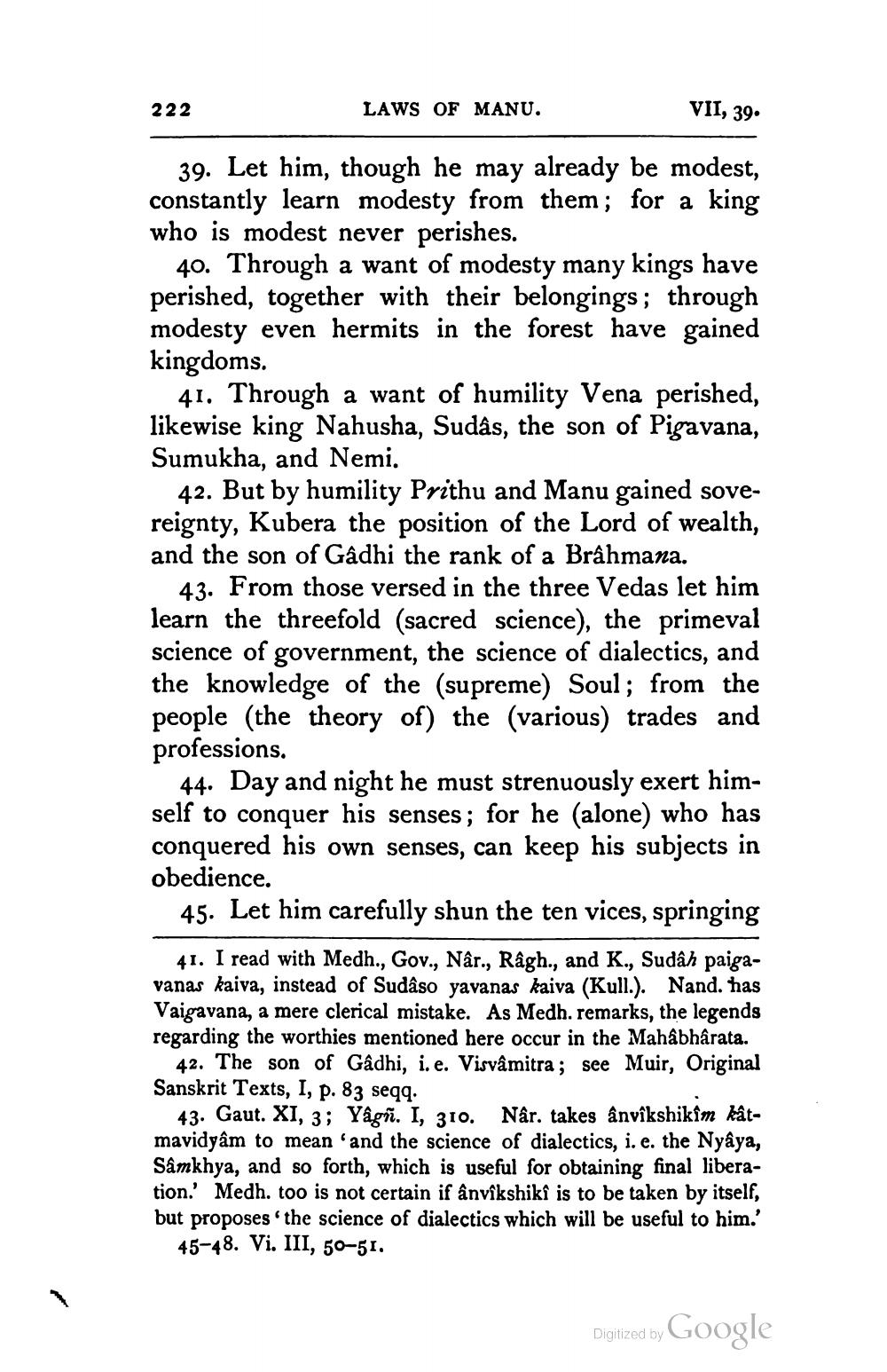________________
222
LAWS OF MANU.
VII, 39.
39. Let him, though he may already be modest, constantly learn modesty from them; for a king who is modest never perishes.
40. Through a want of modesty many kings have perished, together with their belongings; through modesty even hermits in the forest have gained kingdoms.
41. Through a want of humility Vena perished, likewise king Nahusha, Sudâs, the son of Pigavana, Sumukha, and Nemi.
42. But by humility Prithu and Manu gained sovereignty, Kubera the position of the Lord of wealth, and the son of Gâdhi the rank of a Brâhmana.
43. From those versed in the three Vedas let him learn the threefold (sacred science), the primeval science of government, the science of dialectics, and the knowledge of the (supreme) Soul; from the people (the theory of) the (various) trades and professions.
44. Day and night he must strenuously exert himself to conquer his senses; for he (alone) who has conquered his own senses, can keep his subjects in obedience.
45. Let him carefully shun the ten vices, springing
41. I read with Medh., Gov., Nâr., Râgh., and K., Sudah paigavanas kaiva, instead of Sudâso yavanas kaiva (Kull.). Nand. has Vaigavana, a mere clerical mistake. As Medh. remarks, the legends regarding the worthies mentioned here occur in the Mahabharata.
42. The son of Gâdhi, i. e. Visvamitra; see Muir, Original Sanskrit Texts, I, p. 83 seqq.
43. Gaut. XI, 3; Yâgn. I, 310. Nâr. takes ânvîkshikim kâtmavidyâm to mean 'and the science of dialectics, i. e. the Nyâya, Sâmkhya, and so forth, which is useful for obtaining final liberation.' Medh. too is not certain if ânvîkshikî is to be taken by itself, but proposes the science of dialectics which will be useful to him.' 45-48. Vi. III, 50-51.
Digitized by Google




